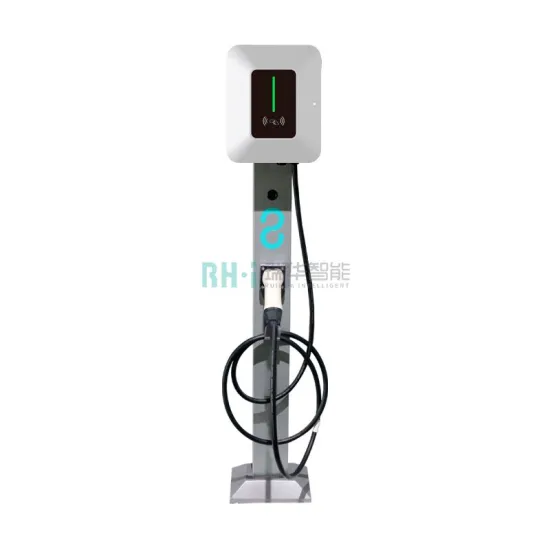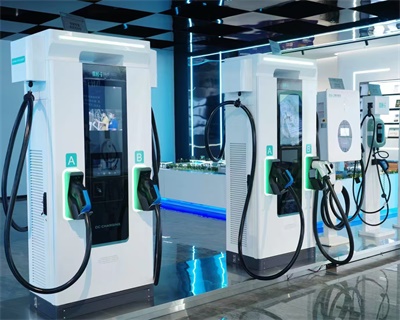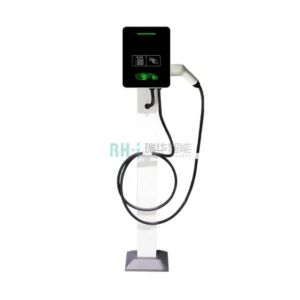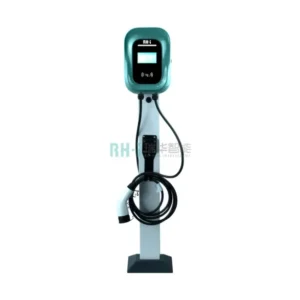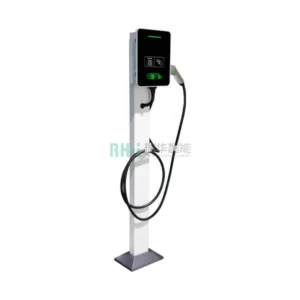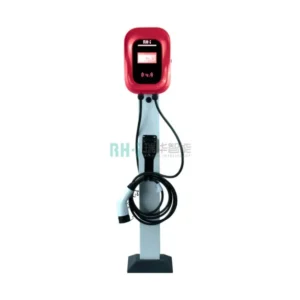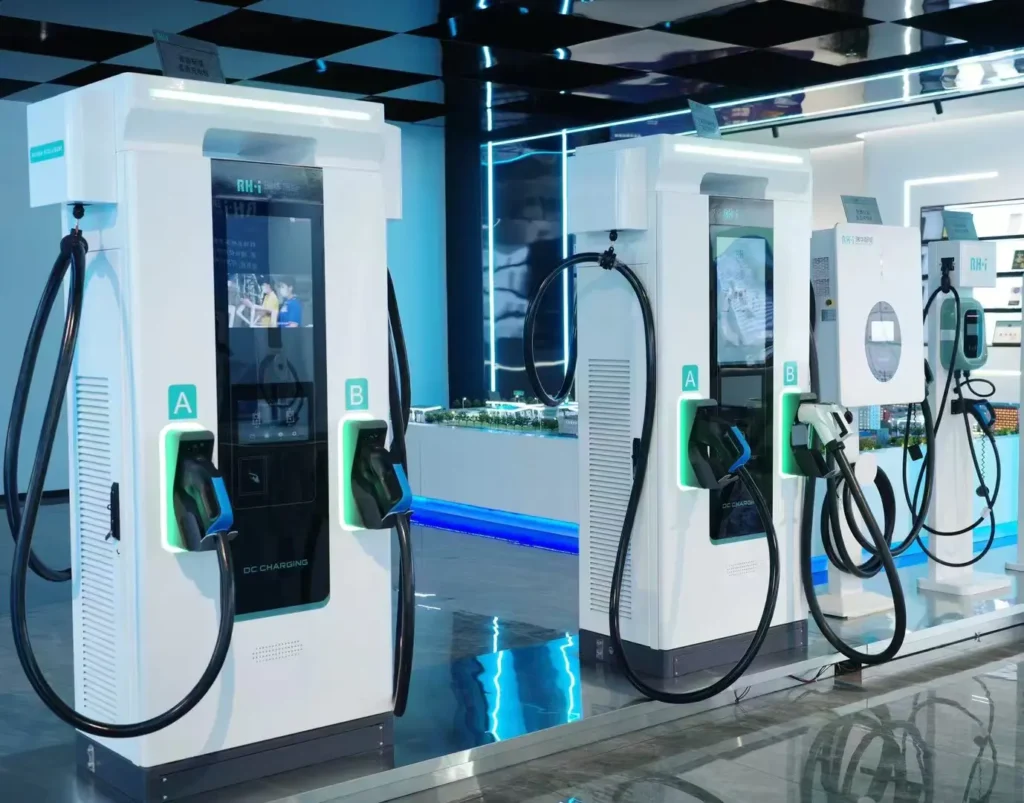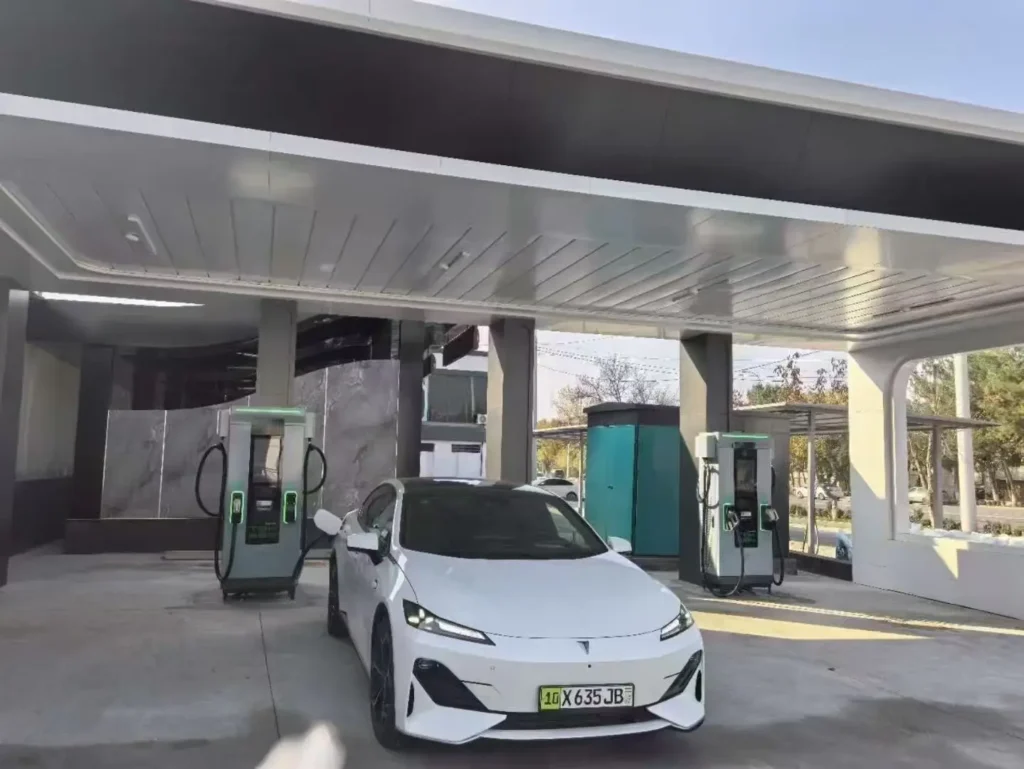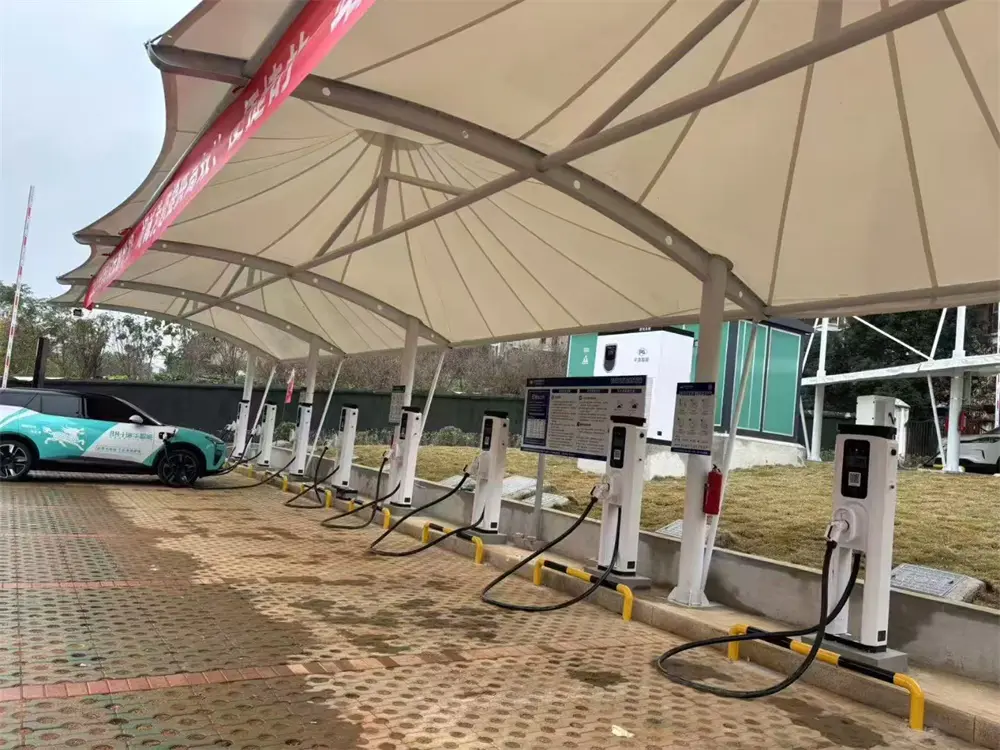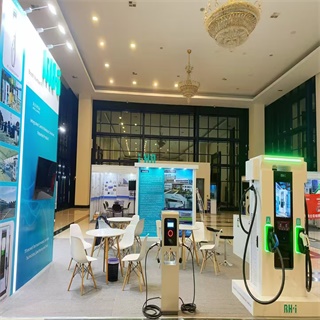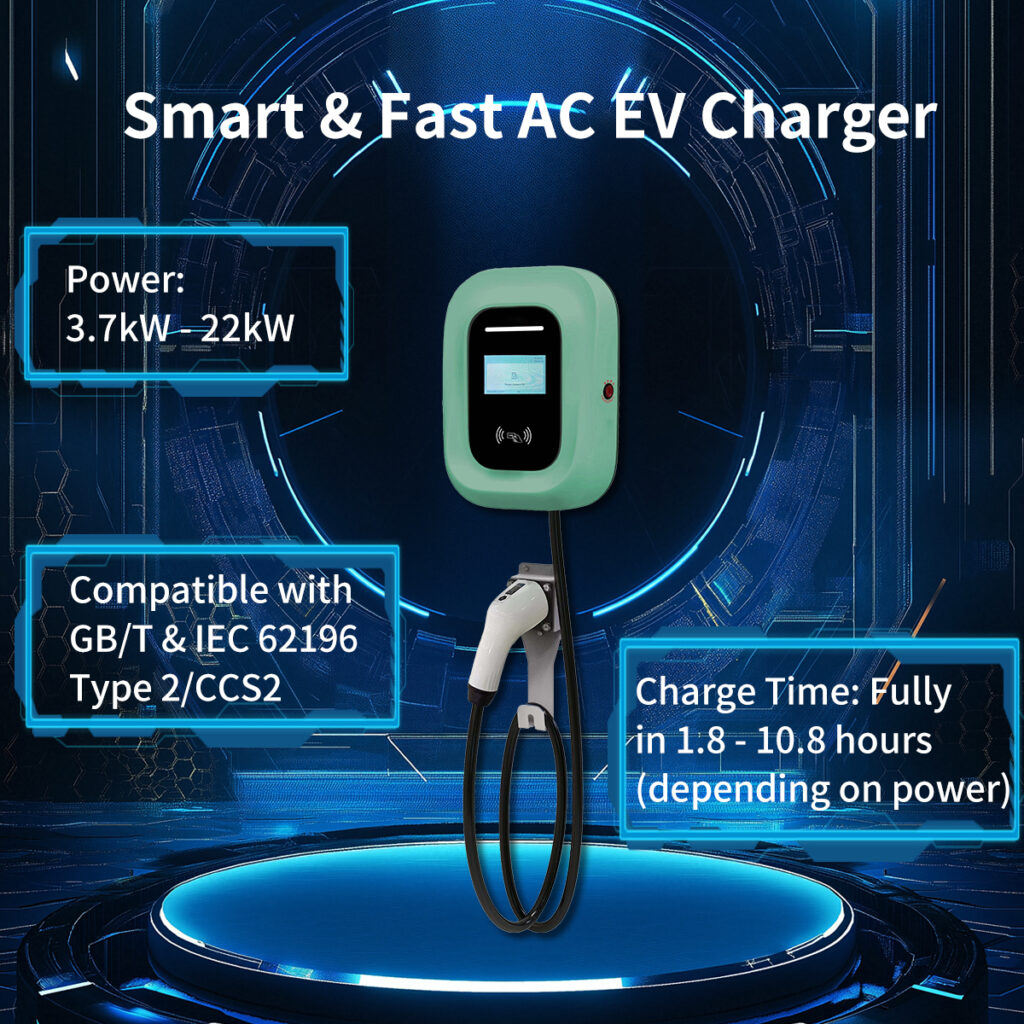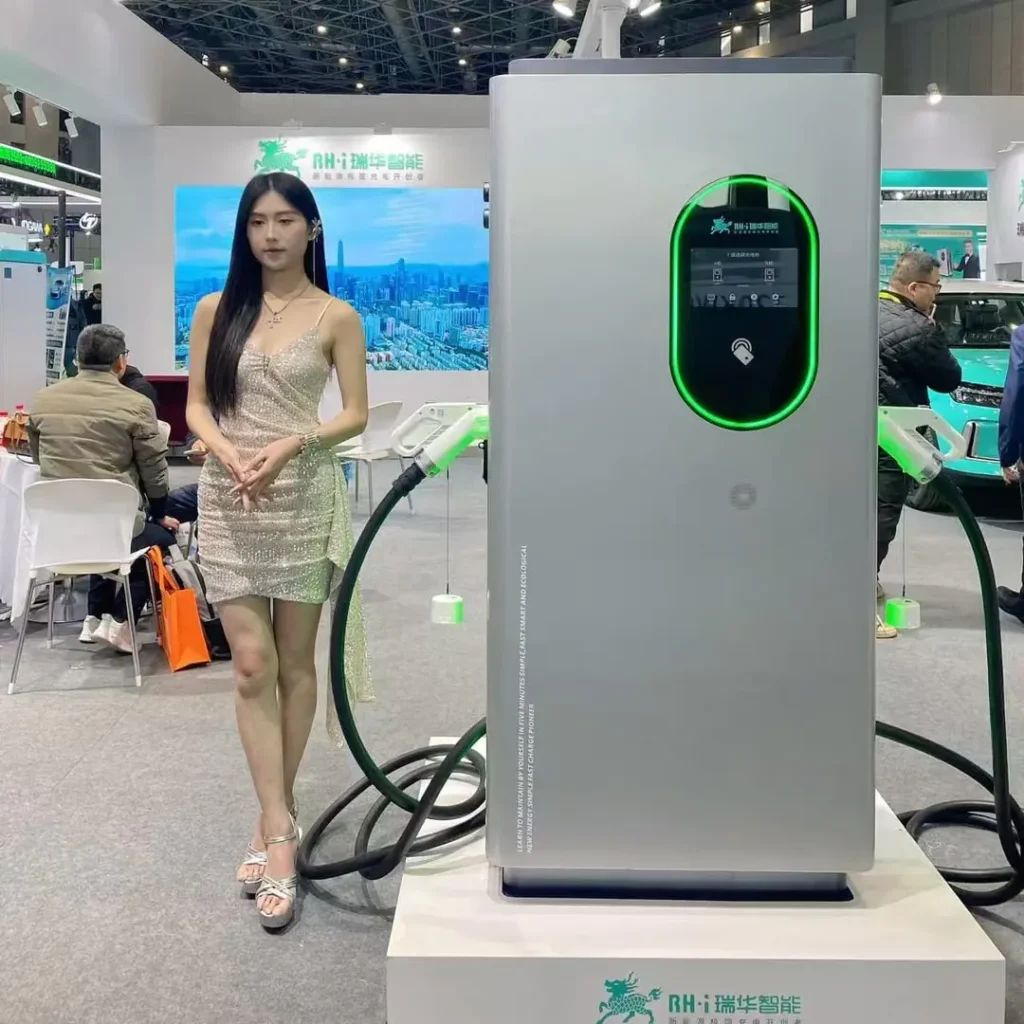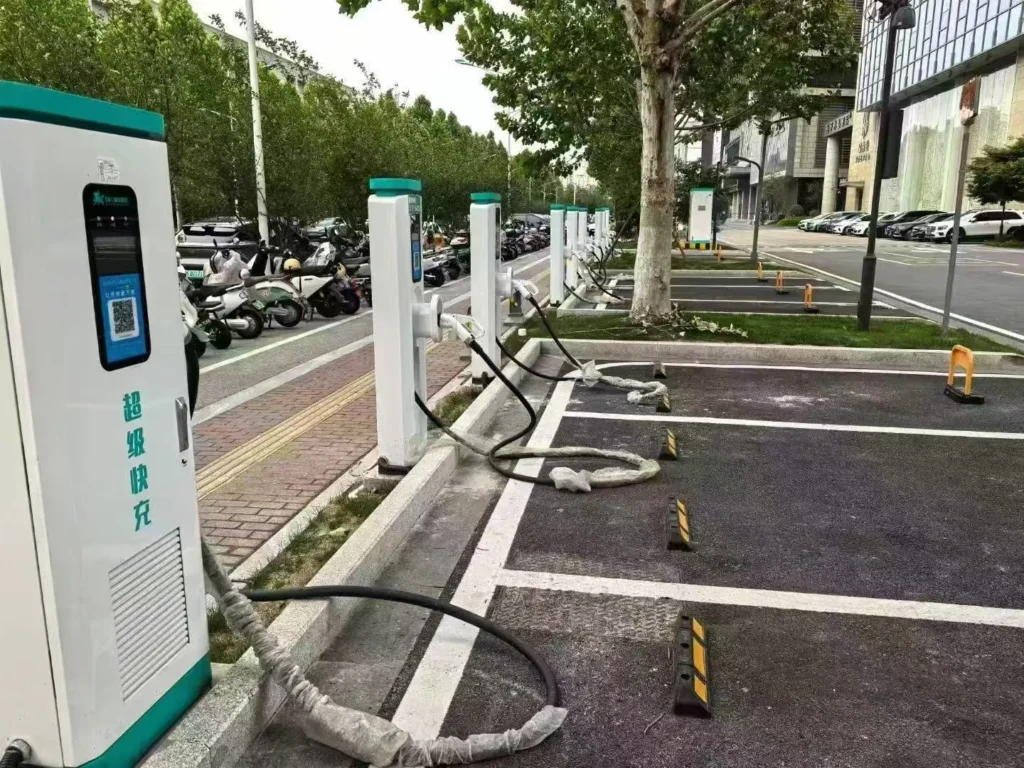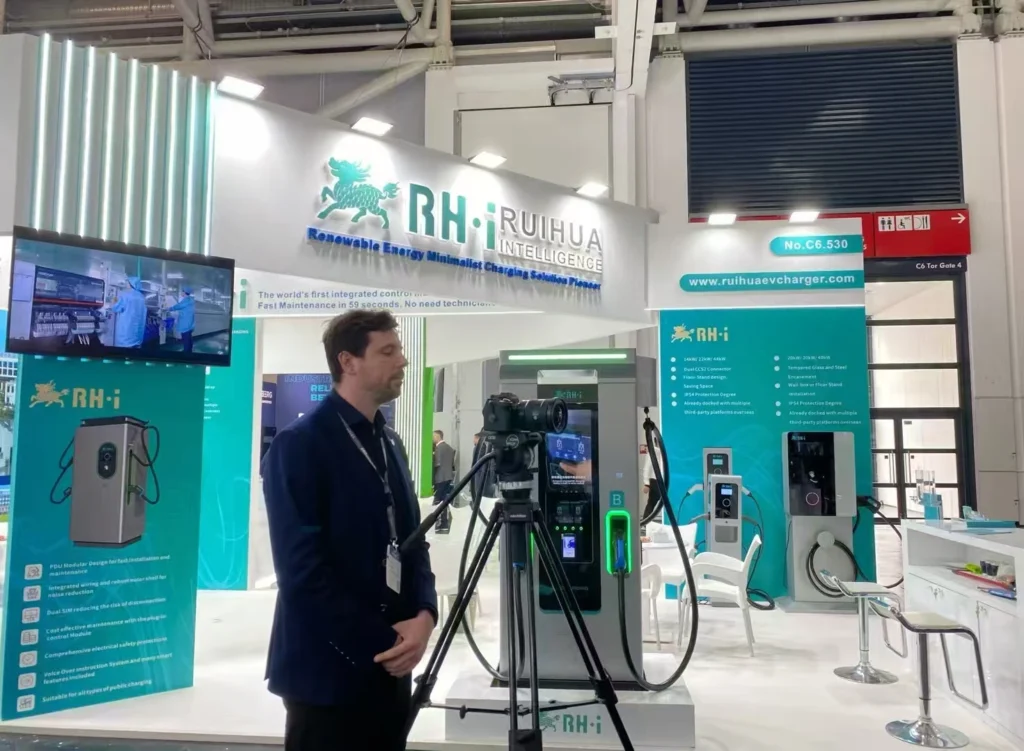7kw Type 2 Charging Point for Car
This 7.4kW high power type 2 EV charging point (32A) is IP65 rated for safe use in both indoor and outdoor environments. Equipped with a 5-meter fixed cable and easy-to-install components, it is suitable for a wide range of applications such as parking lots, fleet management and offices.
The charger is equipped with an interactive LCD display and mobile app that supports timed charging, setting a battery percentage target, and setting a cap on electricity costs per kWh. Standardized interfaces and remote diagnostic capabilities further simplify device management, providing a cost-effective infrastructure solution for commercial charging operators and fleet managers. It helps customers improve charging management efficiency and control operating costs. The product is backed by a 3-year warranty.
Type 2 Charging Point: The European Standard for EV Charging
When it comes to electric vehicle charging in Europe, the Type 2 connector dominates the market—and its influence is spreading worldwide. You might also hear it referred to as a Mennekes connector (after its original developer) or simply as a Type 2 car charging point. This versatile interface powers nearly all modern EVs, from Tesla and BMW to Audi, Mercedes, VW, and Hyundai.
Key Features & Flexibility
The seven-pin Type 2 design isn’t just about compatibility—it’s built for performance. Supporting both single-phase and three-phase AC charging, these units deliver 7kW to 22kW outputs, perfect for overnight home charging or high-traffic commercial sites. But the real advantage? Seamless integration with CCS (Combined Charging System) for DC fast charging when drivers need a quick power boost.
From residential driveways to public charging hubs, Type 2 remains the go-to choice for its reliability and forward compatibility. As EV adoption grows, this connector ensures your infrastructure stays relevant—whether you’re an installer, business owner, or driver.
Cable Requirements for Charging Points
Both the EU and US markets follow the IEC 61851 series of standards (General Requirements for Electric Vehicle Charging Systems), and cables must be certified for electrical safety (e.g., CE marking in the EU and UL 2251 in the US). For example, AC charging cables need to be suitable for mainstream domestic and commercial applications (e.g. SAE J1772 in North America, Type 2 in the EU), while DC fast charging cables must support up to 1500V and 800A (in accordance with IEC 62196-1:2022), and the materials need to be resistant to high temperatures, chemical corrosion, and mechanical abrasion.
Performance and safety design
The charging cable must have a built-in Control Pilot circuit for vehicle-to-station communication and a mechanical locking device to prevent accidental disconnection during the charging process. Sheathing materials need to pass flame retardant tests (e.g. UL 94 V-0) and low-temperature bending tests (-30°C to +50°C environmental suitability), and at the same time take into account flexibility and tensile strength (e.g. TPE/PUR materials). European and American markets have clear requirements for energy efficiency labeling, such as the EU mandatory labeling of power levels to reduce energy waste.
Interface and Interoperability
The European Union has implemented Type-C interface harmonization (Directive (EU) 2022/2380), and future charging devices need to be compatible with standardized interfaces and pass interoperability certification (e.g. CharIN CCS Combo). Cables need to be designed to avoid electromagnetic interference (in accordance with EN 55032) and clearly labeled with the “universal charger” symbol to ensure that users can visually identify compatibility.
Installation and market access
Cable assemblies are only allowed to be installed by licensed professionals (e.g. EU IEC 60364-7-722) and are subject to load cycling tests (e.g. 5,000 cycles of plugging and unplugging durability) by third-party laboratories. Access to the EU market is subject to the RoHS directive (Restriction of Hazardous Substances), while the US market is subject to UL certification and Energy Star efficiency requirements.
Do I Need a Charging Point for a Hybrid Car?
If you’re driving a hybrid vehicle, you might be wondering: do I need a charging point for a hybrid car? Or perhaps: do you need a charging point for a hybrid car to get the most out of it?
The answer depends on the type of hybrid you own:
Plug-in Hybrid Electric Vehicles (PHEVs): Yes, a charging point is recommended. PHEVs have larger batteries that can be recharged by plugging into an EV charger. Using a dedicated charging point at home or at work allows you to take full advantage of electric-only driving, reducing fuel consumption and emissions.
Traditional Hybrids (HEVs) like the Toyota Prius: No, these vehicles charge their batteries internally through regenerative braking and the gasoline engine. They do not require an external charging point and cannot be plugged in.
So, if your vehicle is a plug-in hybrid, installing a charging point will enhance your driving efficiency and lower your fuel costs. But for standard hybrids, it’s not necessary.
| Model | RHAC7K-X | RHAC11K-X/RHAC21K-X |
| Applicaton | Residental / Commercial | |
| Voltage and Wiring | Single Phase 230V | Three Phase 400V |
| Frequency (Hz) | 50/60Hz | |
| Current Output | Single Phase 32A Max | Three Phase 32A Max |
| Charging Connector | Type-2 Socket or Type-2 Tethered 5m | |
| RCD | 30mA AC & 6mA DC | |
| Electrical Protecton | Over current, Under voltage,Over voltage, Over temperature,Surge protecton, Short circuit, Ground fault | |
| Buttons | 1 x Physical Button | |
| Indicatons | Green/blue/Red | |
| Network Connectvity | Ethernet, WLAN, Celluar | |
| RFID | ISO 14443 A/B | |
| Display | 4.3-inch LCD | |
| Data Protocol | OCPP1.6J, OCPP2.0.1 | |
| DLB | Dynamic Load Balancing | |
| Operaton Temp. | -30 °C ~ 50 °C / -22 °F ~ 122 °F | |
| Storage Temp. | -40 °C ~ 70 °C / -40 °F ~ 158 °F | |
| Working Humidity | 5%~95% without condensaton | |
| Mountng Type | Wall Mount (default) / Floor post (optonal accessory) | |
| Ingress Protecton | IP65 | |
| Dimension | 350*250*122 mm (H*W*D) | |
| Weight | 6.5 kg | 7.5kg/9.5kg |
| Mobile App | iOS/Android | |
| Certficaton | CE, IEC 61851-1, IEC 62196-2 | |









Related Products
7kw Home Charger, Single Phase EV Charger
Protection level: IP54
Number of guns: single gun design
Charging interface: CCS2, CHAdeMO, GB/T, etc.
11kW EV Charger, Home AC Car Charger
Protection level: IP54
Number of guns: single/dual gun design
Charging interface: CCS2, CHAdeMO, GB/T, etc.
19.2 KW EV Charger, AC Home Charger
Protection level: IP54
Number of guns: single gun design
Charging interface: CCS2, CHAdeMO, GB/T, etc.
Home 22kw EV Charger, AC Charging
Protection level: IP54
Number of guns: single gun design
Charging interface: CCS2, CHAdeMO, GB/T, etc.

